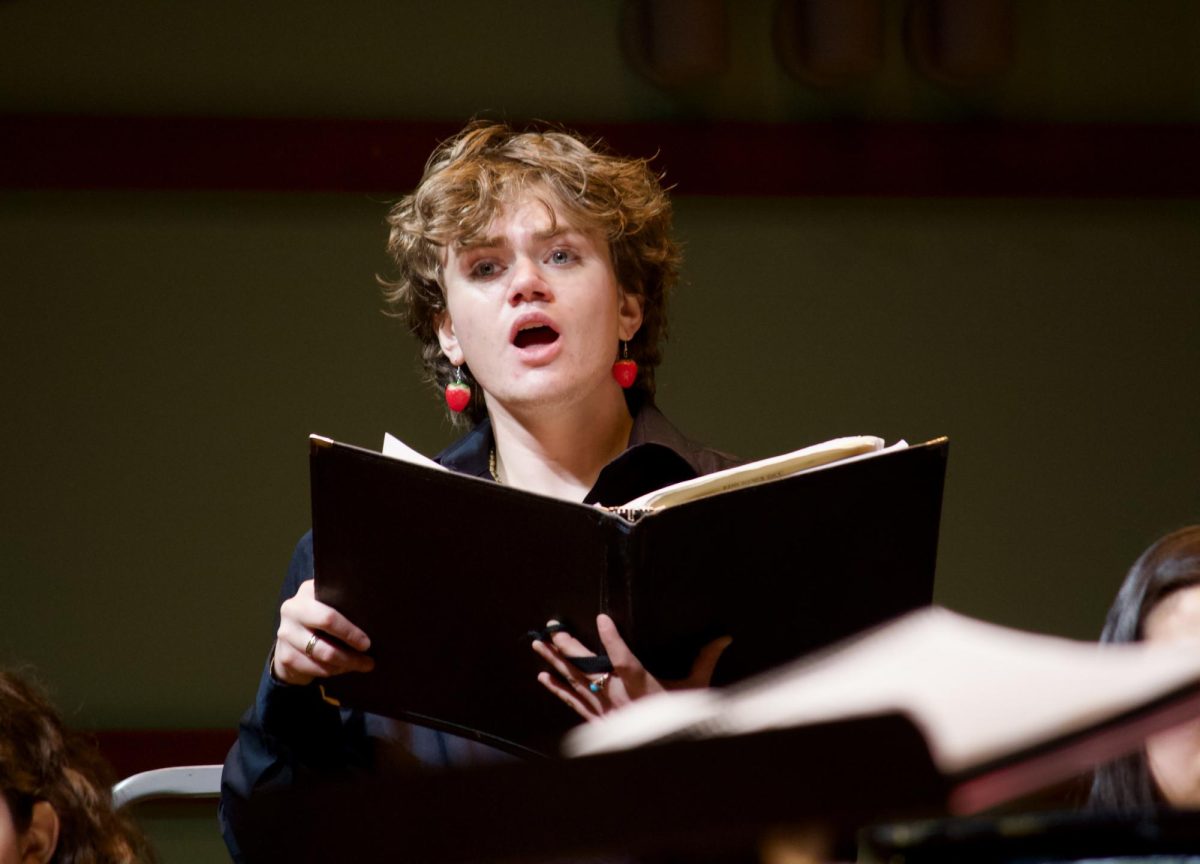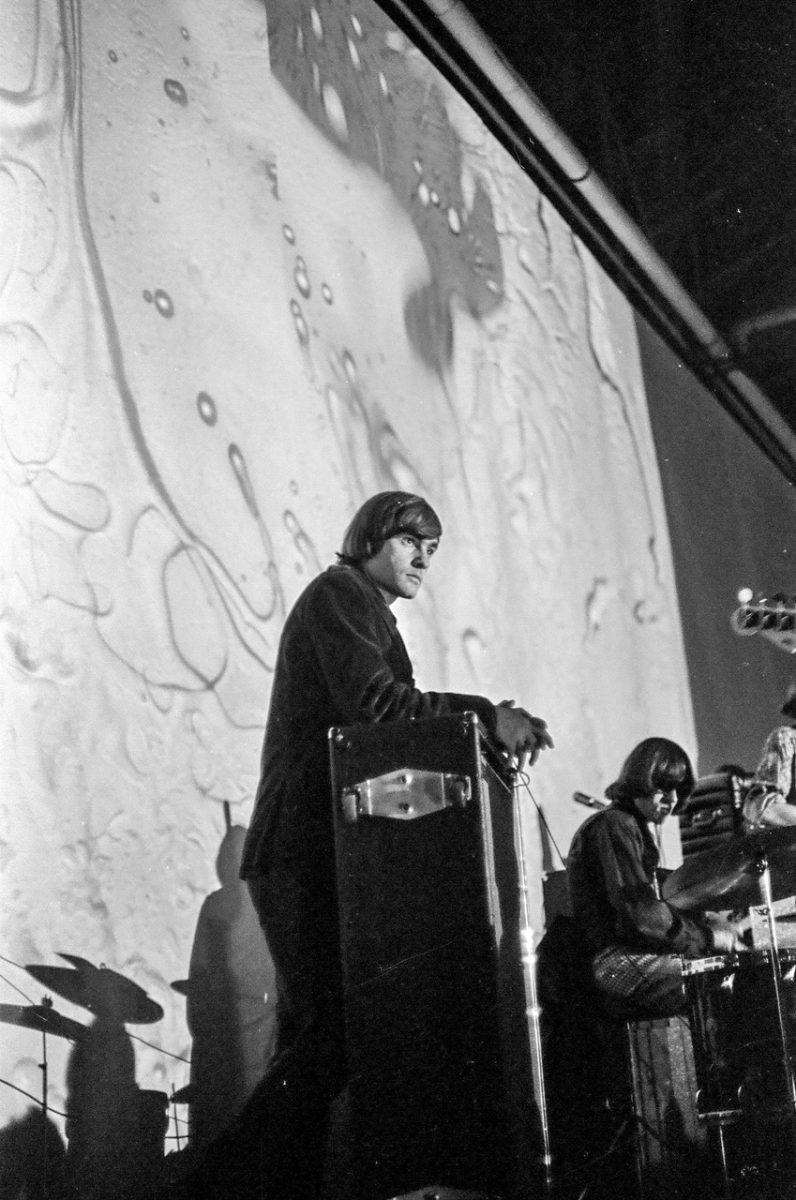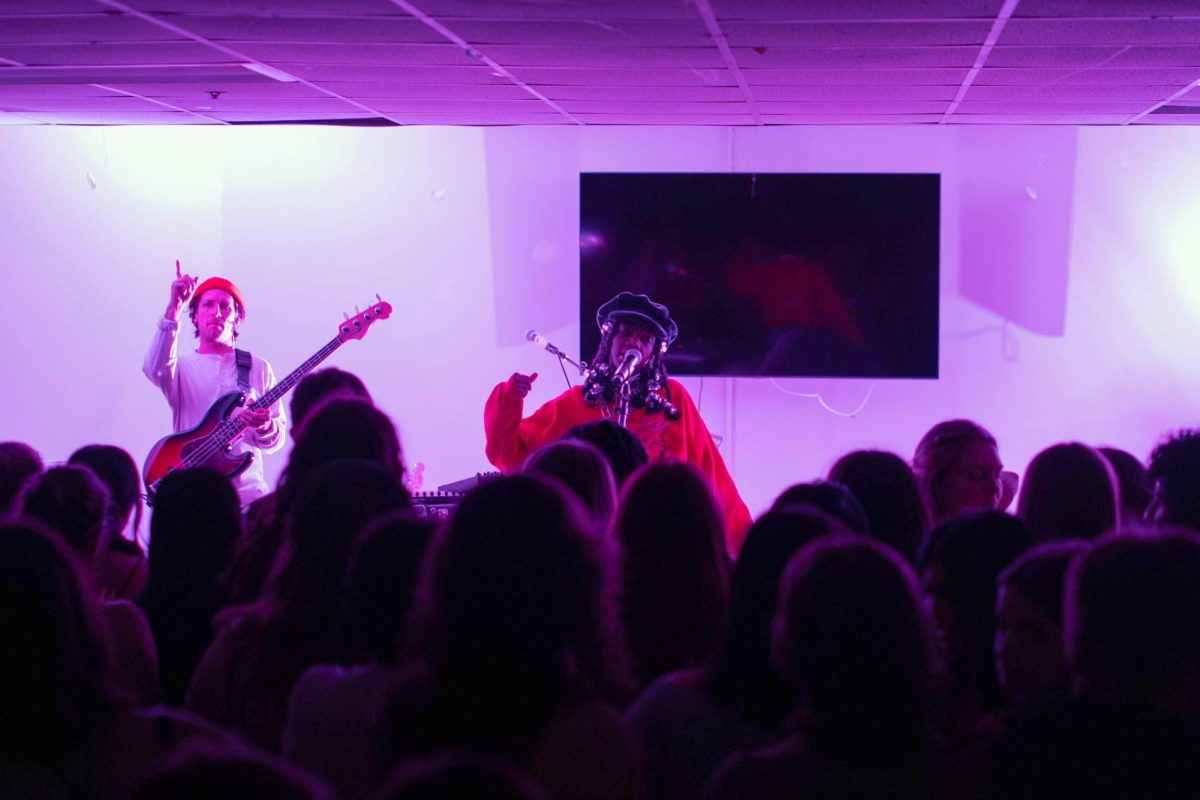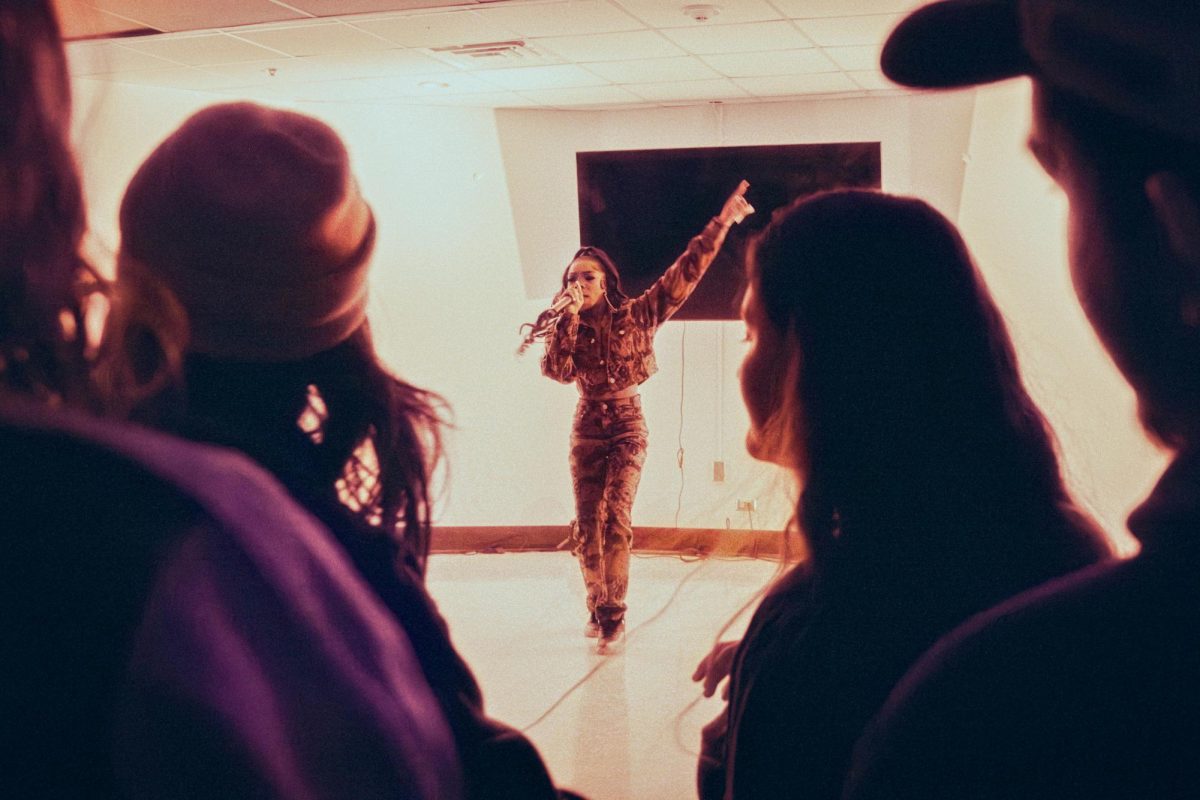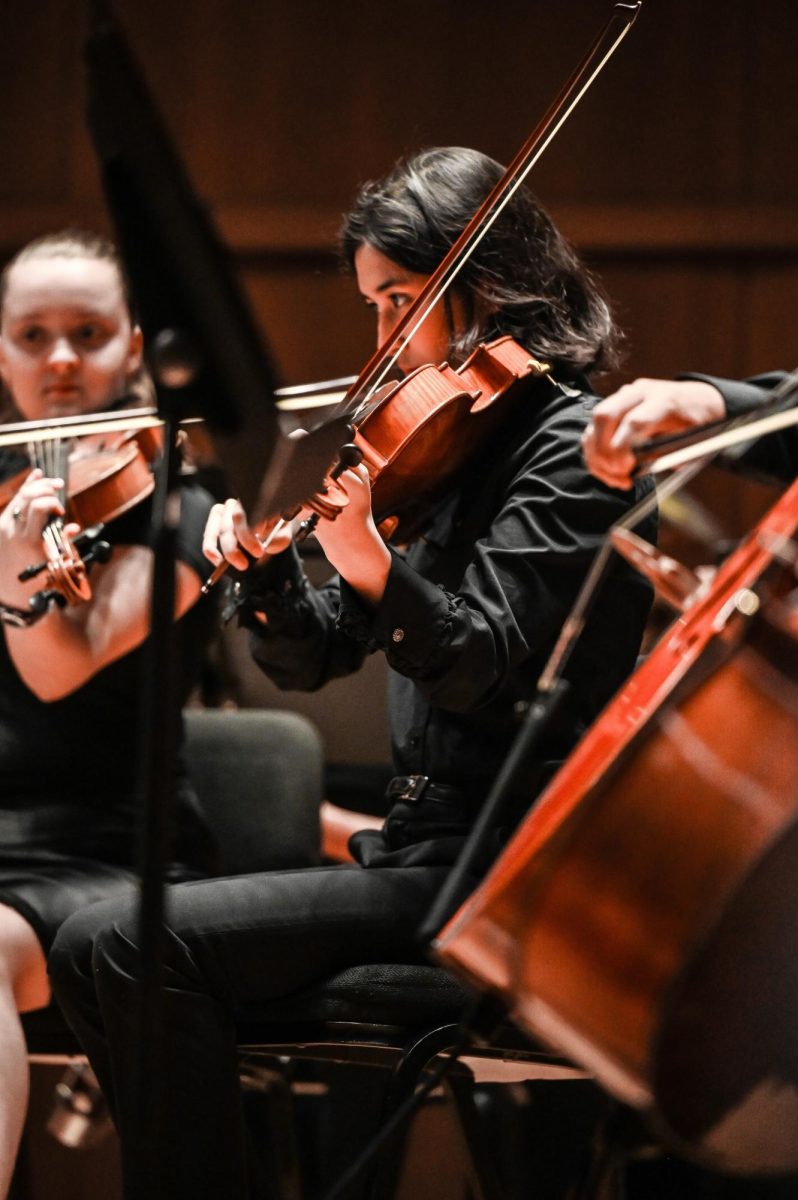Kelly Page
pagekell@grinnell.edu
This Saturday, Sept. 30 at 8 p.m., Herrick Chapel will experience a take on folk music it has probably never seen before. Gay country musicians Lavender Country and AJ Lewis & Friends will take the stage for a night of banjos, fiddles and LGBTQIA+ history.
Lavender Country is often billed as the first ever gay country band. The group formed in 1972, when the gay rights movement as we know it was just beginning. In 1966, lead singer Patrick Haggerty was kicked out of the Peace Corps for being gay, which led him to move back to his hometown of Seattle. There he joined the Gay Liberation Front, an organization created by activists in the wake of the 1969 Stonewall Riots.
Soon afterwards he formed Lavender Country, which originally only sold 1000 copies of its 1973 self-titled album, and performed at the first ever Seattle Pride Parade two years later. The band fell apart in 1976 as Haggerty began to pursue socialist politics and activism for the anti-racist and gay rights movements. He ran for office with a group of Nation of Islam members in the 1990s, and met his husband while working for the AIDS Coalition To Unleash Power (ACT UP).
In 2014, the independent label Paradise of Bachelors re-released Lavender Country’s self-titled album. Since then, the band has played several shows around the country. The album explores gay experiences in the 1970s, singing about the joy of loving your preferred gender in “Come Out Singing” and telling the story of a man who is institutionalized for being gay in “Waltzing Will Trilogy.”
Each song has beautifully layered piano, acoustic guitar, fiddle and harmonized vocals, sounding cheerful and mournful at the same time. For contemporary listeners at Grinnell, the album serves as both a reminder of the LGBT activists of the 1970s and as a powerful portrayal of the love and community that we must foster today. In the song “Lavender Country,” Haggerty sings, “You all come out and make yourselves at home/It don’t matter here/Who you love or what you wear/’Cause we don’t care who’s got what chromosomes,” a message that is beautiful and affirming to this day.
Also playing on Saturday is AJ Lewis, a former Grinnell Gender, Women’s and Sexuality Studies visiting professor and current Northwestern University faculty member and banjo expert.
According to his music Facebook page, “AJ’s old-timey banjo routine highlights themes of drugs, death, nonhuman animals, unusual kinship structures and critiques of capitalism, health and happiness.” He lists influences as diverse as Emmylou Harris and Björk, and his band includes a fiddler and a percussionist who plays the washboard. Since he has to tune his banjo repeatedly between songs, Lewis will often fill the time by telling the crowd about the history of both folk music and LGBT activism, and the intersections of the two.
In addition to being a musician, Lewis is an academic, having received the 2016 Gregory Sprague Prize from the American Historical Association’s Committee on LGBT history. According to his Northwestern University profile, he studies, “how experiments with madness, spells, psychic powers, psychedelics and otherworldly forces helped expand possibilities for thinking and acting during the early onset of neoliberalism.”
An academic, musician and activist, Lewis is possibly one of the best fits to play banjo in Grinnell’s Herrick Chapel.
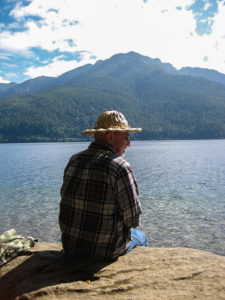
Photo contributed


















































